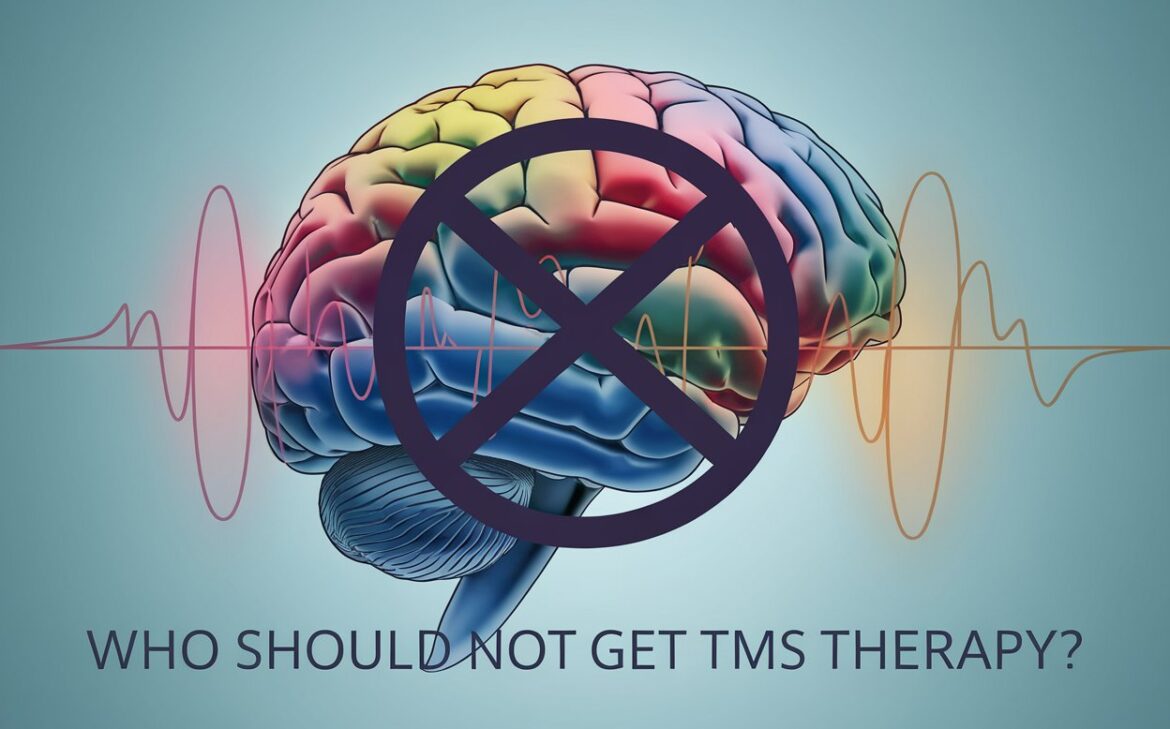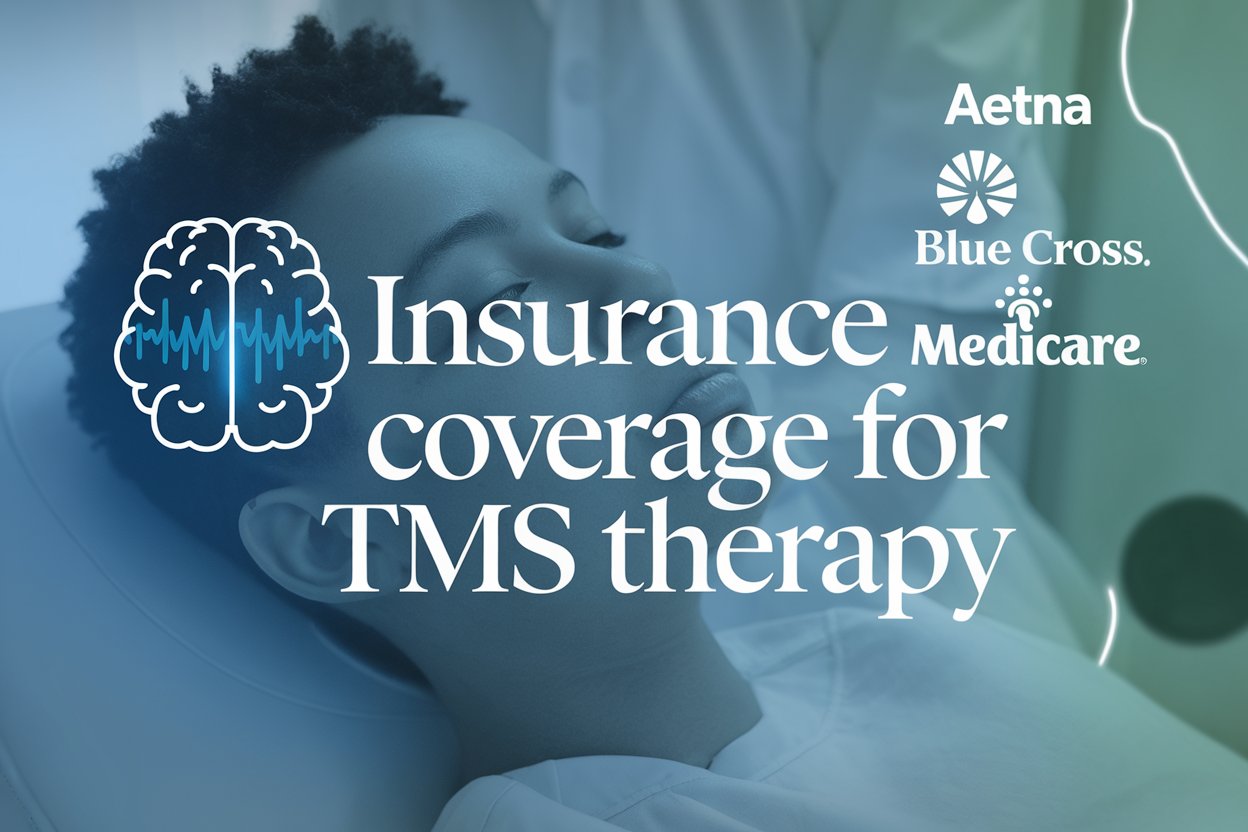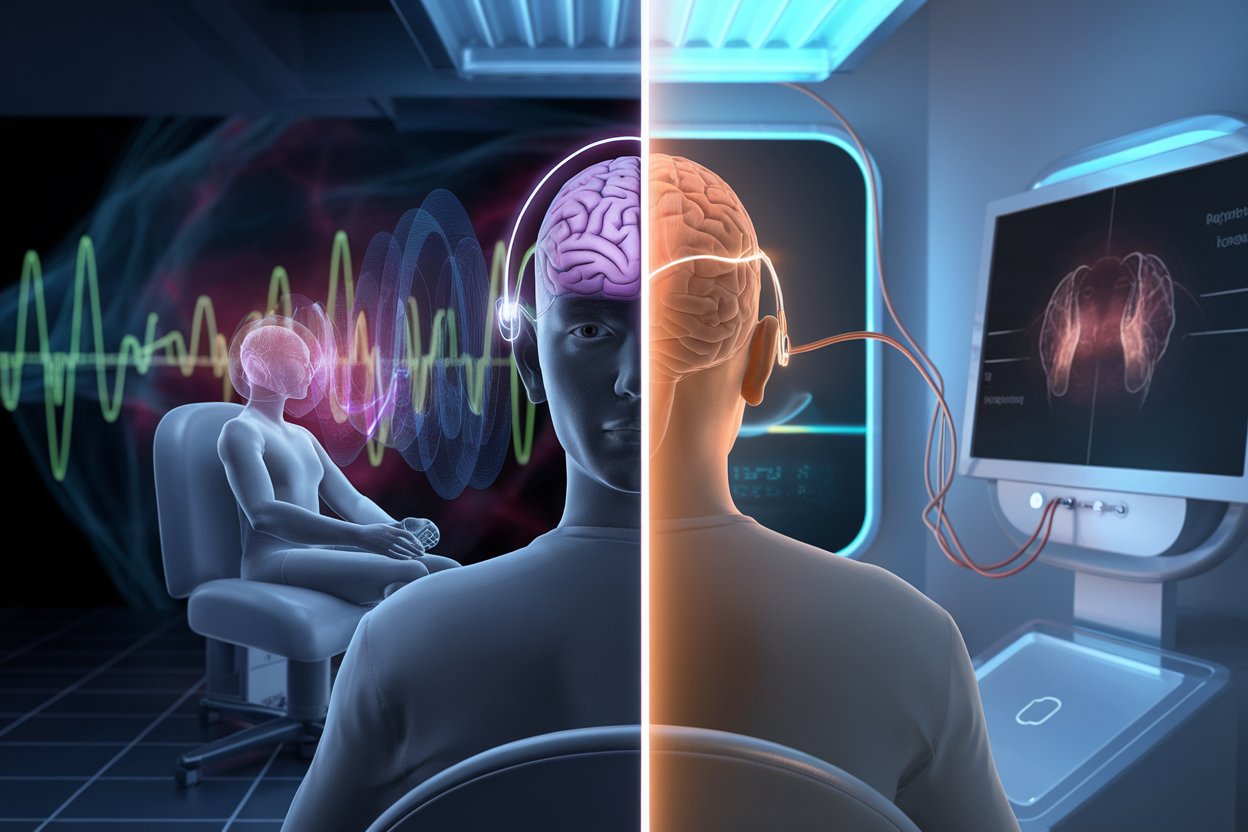Transcranial Magnetic Stimulation (TMS) therapy has helped many people struggling with mental health issues like depression, especially when traditional treatments have failed. But TMS is not suitable for everyone. Understanding who should not get TMS therapy is essential to avoid risks and ensure the safety of patients. This guide will help you understand if TMS therapy is right for you.
What is TMS Therapy?
TMS therapy is a noninvasive procedure that uses magnetic pulses to stimulate specific brain areas. These pulses help activate parts of the brain that are less active in people experiencing depression. TMS is usually recommended for patients who have not responded to medication or other forms of treatment.
During a typical TMS session, a magnetic coil is placed on the patient’s scalp, and magnetic pulses are sent to the targeted area of the brain. This treatment is done as an outpatient procedure, and sessions usually last about 30 to 60 minutes, five times a week for several weeks.
Who Should Not Get TMS Therapy?
Who should not get TMS therapy? It’s a crucial question to ask before beginning treatment. While TMS can be effective for many, there are certain groups of people for whom TMS may not be the right choice.
1. People with Metal Implants Near the Head
Individuals who have metal implants near the head should avoid TMS therapy. The magnetic pulses used in TMS can interfere with metallic objects and cause complications. This includes people with:
- Cochlear implants
- Deep brain stimulation devices
- Aneurysm clips
- Metal plates or screws in the skull
The strong magnetic fields can cause these implants to malfunction or shift, leading to serious risks.
2. Pregnant Women
Pregnant women are generally advised against getting TMS therapy. There is limited research on the effects of TMS on a developing fetus, so it’s better to err on the side of caution. It is recommended that women postpone TMS until after pregnancy and breastfeeding.
3. Individuals with a History of Seizures
People with a history of seizures or epilepsy should not undergo TMS therapy. The magnetic stimulation used during TMS can increase the risk of seizures. Those who have had seizures in the past, or have medical conditions that make them prone to seizures, should consult their healthcare provider for alternative treatments.
4. Patients with Certain Neurological Conditions
Those with specific neurological conditions like multiple sclerosis, brain tumors, or any other condition affecting the brain should avoid TMS therapy. Magnetic stimulation might worsen these conditions or interact negatively with other treatments.
5. People Diagnosed with Bipolar Disorder or Psychosis
If you have a history of bipolar disorder or psychosis, TMS might not be suitable. TMS can sometimes trigger manic episodes in people with bipolar disorder. Similarly, it may worsen symptoms of psychosis. Therefore, it’s crucial to discuss your mental health history with your doctor before considering TMS.
6. Individuals with Implanted Medical Devices
People who have implanted medical devices, such as pacemakers or vagus nerve stimulators, should not get TMS therapy. The magnetic pulses used in TMS could interfere with these devices, leading to potentially dangerous complications.
Potential Risks and Side Effects of TMS Therapy
While TMS is generally well-tolerated, there are some risks and side effects to be aware of. The most common side effects include mild headaches, scalp discomfort, and lightheadedness. These side effects are usually temporary and subside after a few sessions.
However, there is also a small risk of more serious side effects, such as seizures. This risk is extremely low, but it is essential to know if you are at risk before starting treatment. Always consult your doctor to determine if TMS is safe for you.
Alternative Treatments for Those Who Should Not Get TMS Therapy
If TMS therapy is not suitable for you, there are other treatment options available. Here are some alternatives to consider:
1. Medication
Antidepressants and mood stabilizers can be effective for managing depression and other mental health conditions. If TMS is not an option, your healthcare provider can help you find the right medication and dosage that works for you.
2. Psychotherapy
Therapies like Cognitive Behavioral Therapy (CBT) or Interpersonal Therapy (IPT) can be excellent alternatives to TMS. These therapies focus on identifying negative thought patterns, developing coping strategies, and improving relationships.
3. Lifestyle Changes
Simple lifestyle changes can make a significant impact on your mental health. Regular exercise, a healthy diet, adequate sleep, and mindfulness practices such as meditation can all help improve mood and alleviate symptoms of depression.
How to Determine If TMS Therapy Is Right for You
Determining if TMS therapy is suitable for you involves considering both your mental and physical health history. Here are some factors that doctors will evaluate:
- Mental Health History: Individuals with a history of bipolar disorder, psychosis, or seizures may not be suitable candidates for TMS therapy.
- Physical Health History: Conditions like cardiovascular problems or neurological disorders may increase the risk of complications during TMS treatment.
- Presence of Implants: If you have any metal implants in your head or other implanted medical devices, TMS therapy is not recommended.
Summary: Who Should Not Get TMS Therapy?
So, who should not get TMS therapy? TMS is not suitable for everyone, especially those with metal implants near the head, pregnant women, individuals with a history of seizures, and people with specific neurological conditions. Additionally, those with implanted medical devices and individuals diagnosed with bipolar disorder or psychosis should avoid TMS.
If TMS isn’t right for you, there are plenty of other effective treatments available, from medications and therapy to lifestyle changes. It’s important to work with your healthcare provider to find the best treatment for your specific needs. Remember, there are always options available to help you feel better and take control of your mental health.
Ready to Find Out if TMS Therapy Is Right for You?
Think TMS therapy might be right for you? American TMS Clinics offers a personalized evaluation to determine your best treatment path. Visit American TMS Clinics to learn more.





